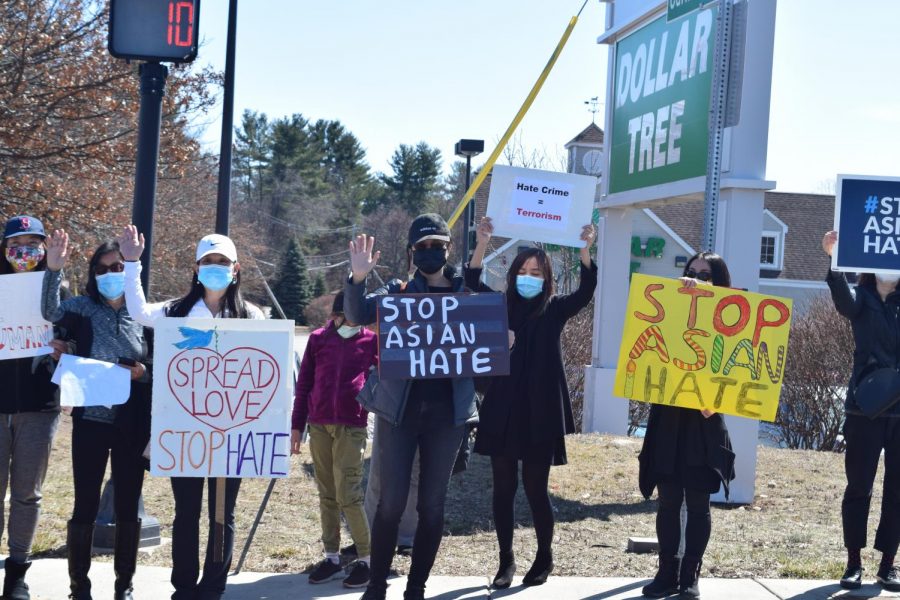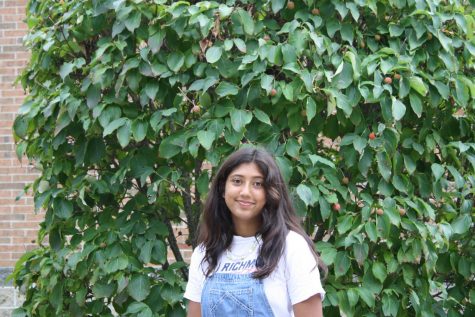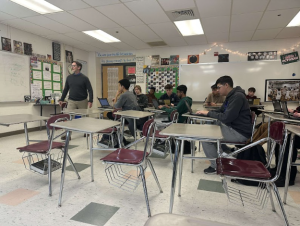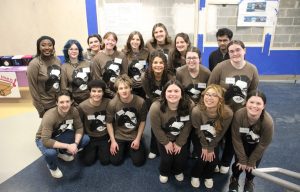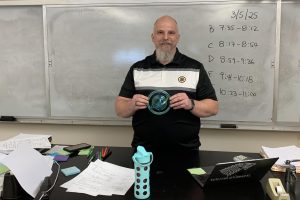We cannot do this alone
Westford residents protest on Boston Road in anti-Asian Hate Rally after Atlanta spa shooting.
June 3, 2021
I was on my way home from my first ever rally protesting anti-Asian hate crimes in the US after six people of Asian descent were shot and killed in the Atlanta spa shooting in March. I had just posted a picture I took from the rally of me holding up my sign that read “I am not a virus”. Only four minutes later did I receive a message on Snapchat from a peer at school who responded, “You kind of are…”, implying that I was a virus — the virus that caused millions of people to die. I was shocked and left speechless. Four minutes after, the message was deleted.
This had been my first ever protest I have ever partaken in and I was so ecstatic. I have always been passionate about going out and making a change especially if it affected the Asian American community. It’s devastating to say that this isn’t my first time that I have experienced a microaggression before in my life, and it’s clear xenophobia is still highly present today.
The picture I posted after the rally reflected my passion and strength for standing up for myself. It isn’t easy admitting that such simple words could have such a deep impact on me. The fear of being called “weak” by society after being told I was the virus stung. To me, these words indicate that I am the reason people around the world are dead; I am the virus the world is currently fearing because of the color of my skin — something I cannot change. It hurts.
According to the Center for the Study of Hate & Extremism at California State University, San Bernardino, Asian hate crimes showed a 169 percent increase in only the first quarter of 2021. Let that sink in.
I have begun to participate in more local AAPI protests and marches in hopes to make a change. I have joined a Cambodian non-profit organization that aims to improve the quality of life of Cambodians and other minority groups in Lowell.
As a 16-year-old, this is what I am doing for my part in society. But is marching around your town center for two hours really going to make a difference? Think about it, the goal of equality in this country is a far reach, so why even bother protesting if we can’t even achieve it, right?
The basic reason people protest is to simply educate others and spread awareness on the issue. When I held up my sign up as cars drove past at my first anti-Asian hate rally, I proved to myself that I am strong — strong enough to stand up for myself, for the AAPI community, and for those who are too afraid to do. Doing your part to educate people on what’s happening in the world they live in can change their views of the world, and that is important. Though it may seem like the smallest act, it does make a difference, maybe not in the moment but in the long run; because if you don’t go out, who will?
In the past, it’s been easy to ignore such violence that doesn’t happen in your town — which is understandable to an extent when the issue “doesn’t affect you”. However, due to the increase of rallies, protests, and marches, the way people talk about Asian hate has fortunately changed, which is progress. The keyword is progress. We cannot end racism within a week or even a year if we wanted to. Asian hate is an issue that has been around too long in order to have a quick and simple solution, so we have to continue to educate. All I’m asking you to do is the bare minimum — educate yourself. By educating yourself on the issue first, you are then able to spread awareness. Now fully understanding the issue means that you know spreading awareness is not the only step in ending injustice, but knowing that this is the least you can do.
No one should ever have to experience the casual racism that comes with having small eyes. No one should ever have to worry about getting beaten up on the streets right outside of your apartment building, but the AAPI community and so many other minorities have. We can help make a change, but we can’t do it alone.

